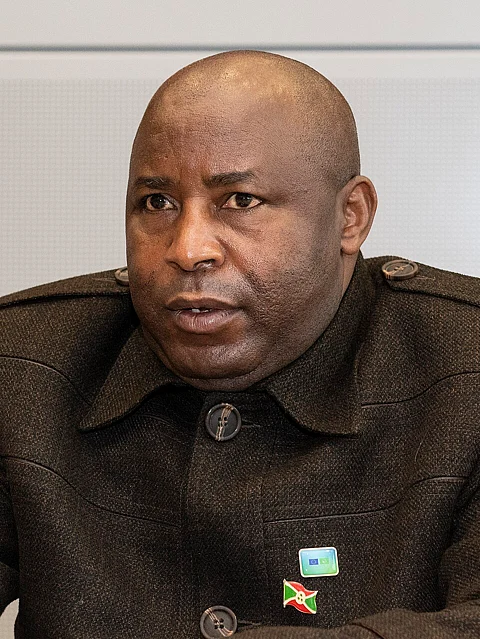

Burundi’s ruling party, the CNDD-FDD, secured every seat in last week’s parliamentary elections, the electoral commission announced Wednesday, in a vote marred by allegations of irregularities and opposition suppression.
"Nationally, the CNDD-FDD came first with 96.51 percent of the vote," said Prosper Ntahorwamiye, head of the electoral commission, during a televised ceremony. None of the other parties reached the constitutional threshold of 2% needed to enter the National Assembly, meaning "all 100 seats go to the CNDD-FDD," he added.
The final results of the June 5 poll will be confirmed by the Constitutional Council on June 20.
The National Congress for Liberty (CNL), the main opposition party barred from participating, accused authorities of multiple violations, including forced voting, blocked access for observers, and arbitrary arrests. Anicet Niyonkuru, a legislative candidate from the smaller opposition Council of Patriots, told AFP that voters deposited pre-filled ballots, calling it "a major fraud that was seen everywhere."
Olivier Nkurunziza, leader of the Uprona party, which received just 1.38% of the vote, declared the elections "rigged." He noted that in some districts, the CNDD-FDD won 100% of votes with no invalid ballots or abstentions—despite Uprona fielding at least 50 candidates in each area. "We have killed democracy," he said.
Journalists and voters, speaking anonymously for security reasons, also reported widespread irregularities.
President Evariste Ndayishimiye, who took office in 2020 after the death of long-time ruler Pierre Nkurunziza, has alternated between gestures of openness and authoritarian crackdowns. His government has been accused of systematically dismantling opposition, including sidelining the CNL, which came second in the 2020 elections.
Burundi remains the world’s poorest country by GDP per capita, with 75% of its 12 million people living in poverty. A severe fuel shortage has paralyzed the nation for nearly three years, while inflation exceeds 40% annually.
Human Rights Watch (HRW) reported that the elections took place in an environment of intimidation, censorship, and restricted political freedoms. "Burundians voted in an atmosphere devoid of genuine political competition," said Clémentine de Montjoye, HRW’s senior Great Lakes researcher.
While the African Union praised the elections as "peaceful" with high turnout, its assessment starkly contrasted with reports of coercion and fraud. The Catholic Church, which has criticized past elections, had observers barred from some polling stations.
As Burundi prepares for senatorial and local elections in July and August, analysts warn of deepening authoritarianism amid economic collapse. "Without credible opposition, this election only further entrenches authoritarian rule," de Montjoye said.